
It’s a pretty safe bet to say that we spend a lot of time at work. Many professionals spend 40 hours a week working (some much more than that). Regardless of the amount of time you spend on the clock, stress and mental strain can be expected on the job. If that stress goes unchecked for too long, it can create serious problems for employees and organizations alike.
Deteriorating mental health isn’t a closed off issue unique to one person at a time; it affects everyone. It influences the way we work in teams, our consistency, and even our professionalism as we attempt to process the world around us. Negative mental health issues can create disastrous results for employees and the companies they work with.
In 2016, a Work and Wellbeing survey by the American Psychological Association (APA) reported that less than half of the 1,501 workers surveyed felt their organization supported employee well-being and one in three reported chronic stress on the job.
Discussing matters involving what’s going on in your head is tough, it’s personal and it can be awkward. Many of your co-workers might not share the same worldviews, or deal with the same stressors you routinely encounter, so it’s no wonder why these issues are taboo in the workplace.
Some people are making strides to shed light on mental health issues on the job such as stress, depression, and feelings of isolation to help show that we all deal with them in one form or another. Madalyn Parker (a web developer from Olark Live Chat) sent shockwaves around every corner of the internet when her request for a day off for mental health went viral.
One of Madalyn’s teammates adds, “It is incredibly hard to be honest about mental health in the typical workplace. In situations like this, it is so easy to tell your teammates you are ‘not feeling well.’ Even in the safest environment, it is still uncommon to be direct about mental health issues.”
Progress aside, discussing mental health at work remains a precarious road to travel. Many employees don’t want to discuss their issues with their co-workers or their supervisors because they don’t want it used against them later. No one wants to risk damaging a relationship or compromise their standing with future employers because they are perceived a certain way due to the stigma associated with mental illness. So, people stay silent.
The thing is, even though these issues are hard to diagram at times, they have very real implications for businesses. Mental health conditions and the effects of them cost employers more than $100 billion and a staggering 217 million lost workdays every year according to findings by Harvard University Medical School.
The issues are real, whether employees are talking about them or not.
The brain is just like any other part of the body. When it deals with trauma, it, like any other muscle we have needs time to recover. Without the proper treatment, more problems will arise, sooner or later.
When it comes to stress in the workplace, it’s critically important that employees have the proper amount of time to decompress. Whether examining the duration of breaks or lunches, or running reports on an employee’s hourly work week, Actsoft provides timekeeping functionalities that make it possible to ensure your employees don’t spend more time working than they should. Everyone needs time away from the job to get their thoughts in order and to clear their heads. With Actsoft, you can be sure your workforce is taking the time needed to help reduce stress and keep people level headed.
Just to be clear, breaks and lunches aren’t the solutions to mental health issues. Not by a longshot. However, ensuring employees feel like it’s ok to step away from the job is a major step in the right direction. Professionals (regardless of title) need to know and understand that the job is important, but so is their mental well-being. It’s beneficial to take some time to compose yourself, and it should be encouraged to foster a healthy, productive, and efficient workforce.
Have any questions on how Actsoft can help you?
Call (888) 732-6638 or Receive a Live Webinar
















 Encore & Geotab Drive
Encore & Geotab Drive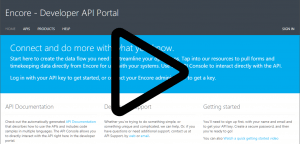
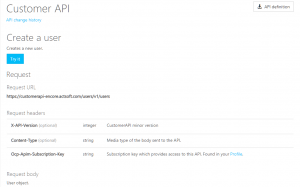
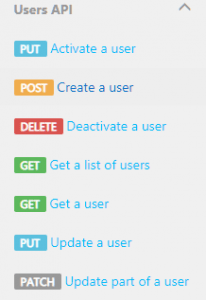
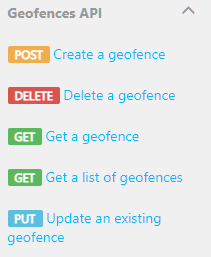

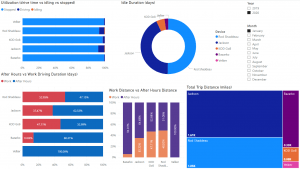
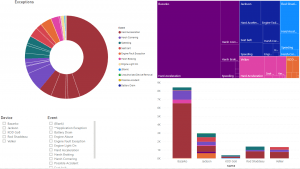
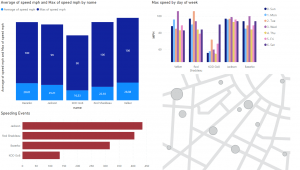
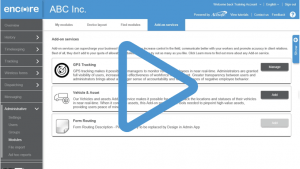
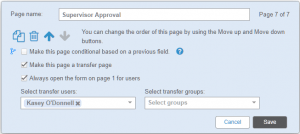
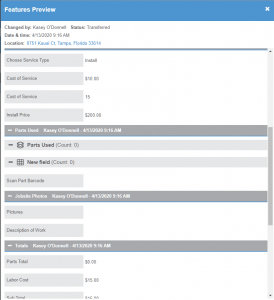
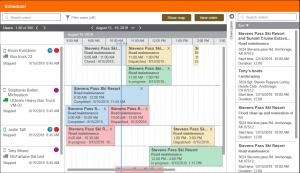
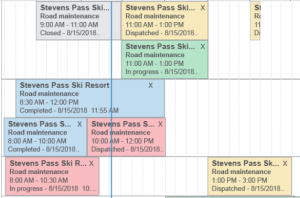

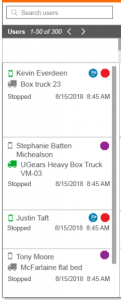
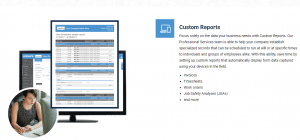
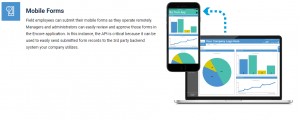




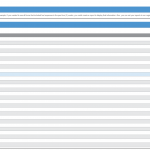
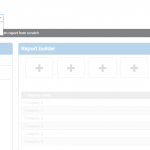
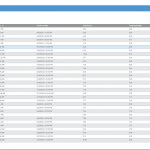
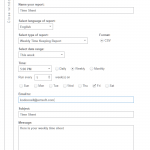
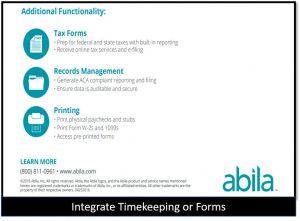
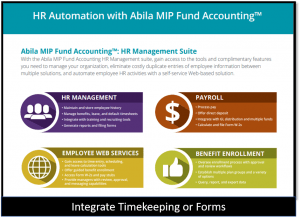




 Actsoft partnered with Odin to provide our solutions overseas, through payment processing integrations. Odin helps us support user management for our software; customers can also purchase our products through Odin’s billing platform.
Actsoft partnered with Odin to provide our solutions overseas, through payment processing integrations. Odin helps us support user management for our software; customers can also purchase our products through Odin’s billing platform.

 VisTracks powers our Electronic Logging Device (ELD) solution, which enables transportation businesses to easily automate their hours of service logs, remain in governmental compliance, and reduce their potential to incur costly fines.
VisTracks powers our Electronic Logging Device (ELD) solution, which enables transportation businesses to easily automate their hours of service logs, remain in governmental compliance, and reduce their potential to incur costly fines. Integration between Actsoft solutions and BeWhere’s software products is available. Take your team’s asset tracking, cellular data connectivity, and field insight a step further with effective, cross-application compatibility.
Integration between Actsoft solutions and BeWhere’s software products is available. Take your team’s asset tracking, cellular data connectivity, and field insight a step further with effective, cross-application compatibility.
 CalAmp tracking devices for vehicles and assets alike are compatible with Actsoft solutions, making it easy for you to efficiently monitor your equipment and fleet cars. Help your team enhance accountability, safety, and savings through a combination of easily installed hardware and intuitive software.
CalAmp tracking devices for vehicles and assets alike are compatible with Actsoft solutions, making it easy for you to efficiently monitor your equipment and fleet cars. Help your team enhance accountability, safety, and savings through a combination of easily installed hardware and intuitive software. Gain even greater insight into the daily activities of your fleet using the combination of Geotab and Actsoft. Geotab devices provide detailed data collection and seamless integration with our solutions; learn more about the ways your vehicles are being used daily with the power of this tandem.
Gain even greater insight into the daily activities of your fleet using the combination of Geotab and Actsoft. Geotab devices provide detailed data collection and seamless integration with our solutions; learn more about the ways your vehicles are being used daily with the power of this tandem.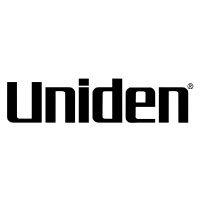 Our partnership with Uniden is ideal for companies looking to gain advanced diagnostics on their fleets. Uniden’s extensive product listing of car electronics like radios, dash cams, radar detectors, and in-vehicle communicators work in concert with Actsoft’s solutions to better connect your vehicles to the company headquarters.
Our partnership with Uniden is ideal for companies looking to gain advanced diagnostics on their fleets. Uniden’s extensive product listing of car electronics like radios, dash cams, radar detectors, and in-vehicle communicators work in concert with Actsoft’s solutions to better connect your vehicles to the company headquarters.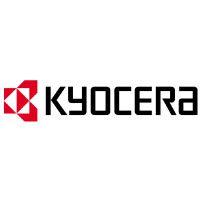 Kyocera offers a wide range of mobile devices, ranging in design from traditional phones to ultra-durable handset technology. Actsoft is able to equip organizations in a variety of different industries with solutions for improved business, while Kyocera supplies the technology they can flawlessly operate on.
Kyocera offers a wide range of mobile devices, ranging in design from traditional phones to ultra-durable handset technology. Actsoft is able to equip organizations in a variety of different industries with solutions for improved business, while Kyocera supplies the technology they can flawlessly operate on.

 Motorola’s mobile technology works in tandem with our solutions to provide extra versatility to your business practices. Coupled with our software’s features, Motorola’s reliable devices make connecting your workforce simpler than ever to do.
Motorola’s mobile technology works in tandem with our solutions to provide extra versatility to your business practices. Coupled with our software’s features, Motorola’s reliable devices make connecting your workforce simpler than ever to do. Actsoft and Sanyo teamed up to merge intuitive business management software with the technology of today. This partnership allows us to provide you with all the tools your team needs for improved workflows, better coordination, and optimized productivity.
Actsoft and Sanyo teamed up to merge intuitive business management software with the technology of today. This partnership allows us to provide you with all the tools your team needs for improved workflows, better coordination, and optimized productivity. We’re able to bundle certain solutions of ours (including our Electronic Visit Verification options) with Samsung devices to help your team achieve as much functionality as possible, while keeping rates affordable. Use these combinations for accurate recordkeeping, improved communication, and smarter data collection in the field.
We’re able to bundle certain solutions of ours (including our Electronic Visit Verification options) with Samsung devices to help your team achieve as much functionality as possible, while keeping rates affordable. Use these combinations for accurate recordkeeping, improved communication, and smarter data collection in the field.
 Our software is the perfect complement to Apple’s user-friendly technology. Equip your workforce with the devices and solutions it needs for optimized productivity during daily operations with Apple and Actsoft.
Our software is the perfect complement to Apple’s user-friendly technology. Equip your workforce with the devices and solutions it needs for optimized productivity during daily operations with Apple and Actsoft.
